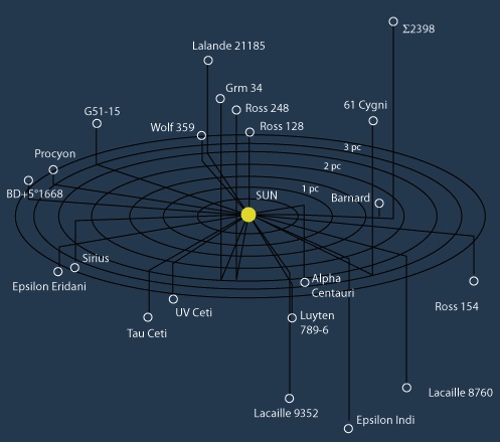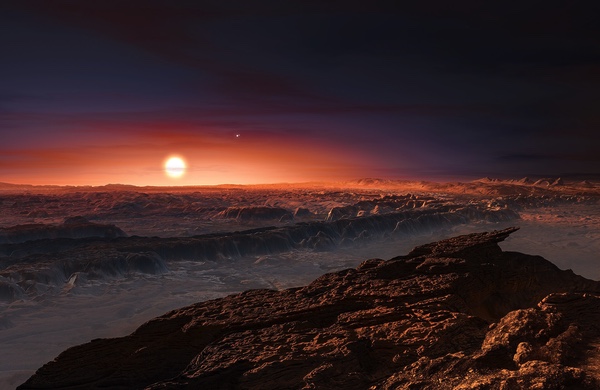Why science at NASA?by Ajay Kothari
|
| But the attempt to cut NASA’s budget, especially that of SMD, has brought forth the importance of it, not just for the country or even humanity, but for life on Earth. |
Why pursue space exploration? Why should we as humanity pick up this baton and run with it? The reasons go beyond practical benefits like new technologies, economic competition, or securing resources. It’s a profound undertaking that reflects our curiosity about the universe, highlighted by concepts such as the Drake Equation and Fermi Paradox, and addresses deeper questions about humanity’s place in the cosmos.
Earth is about 4.5 billion years old, with multicellular life appearing roughly a billion years ago. Since then, there have been four to five major mass extinctions: Ordovician-Silurian (approx. 440 million years ago), Permian-Triassic (approx. 253 million years ago), Triassic-Jurassic (approx. 201 million years ago), and K-Pg or Cretaceous (approx. 66 million years ago, wiping out 75% of species). Yet, Earth consistently gave rise to new life.
Now let us look at the Drake Equation, attributed to Dr. Frank Drake, who passed away a few years ago:
N = R_* f_P * n_e * f_l * f_i * f_c * L
By assigning estimated values to each term, the resulting N ranges from several thousand to several million. This calculation applies only to the Milky Way galaxy, while the Universe contains trillions of other galaxies.
In the summer of 1950, at Los Alamos National Laboratory in New Mexico, Enrico Fermi engaged in a lunchtime discussion with colleagues Emil Konopinski, Edward Teller, and Herbert York. During the conversation, Fermi abruptly posed the now-famous question, “But where is everybody?” This query highlights the absence of observable extraterrestrial life, despite significant advancements in our ability to observe the universe, such as those made possible by the Hubble and Webb telescopes. The central question persists: “Where is everybody?”
So, whether the Fermi paradox holds or not, we have been granted a huge responsibility: by God for the believers among us and by happenstance for the atheists. If the Fermi Paradox does hold—which appears to be the case at least in the nearby neighborhood within the sphere of ten light years or even 100 light years with possibly 10,000 stars—we are extremely unique and need to be an excellent steward of the precious cargo of all lifeforms. If the Fermi Paradox does not hold, we need to be ready to protect us all, just in case.
In either case the answer is the same. We need to be aware of this responsibility. And NASA, specifically SMD, and space agencies of various countries too, need to take this on. It is not just about going there, it is also about a realization, about finding out.
 Nearby universe: stars in a 12.5-light-year sphere centered on the Sun. |
This doesn’t mean humans are superior to other species, but that we have a unique responsibility in the universe to foster evolution as we move into space. So far, we have evolved only in two dimensions, with wars, expeditions, and expansions, on Earth’s surface. Now another dimension has opened up. Let us pay attention to that. We should care not just for Earth, but for all life forms—including those as small as ants and insects—as the DNA of each may be uniquely valuable.
| If the Fermi Paradox does hold, we are extremely unique and need to be an excellent steward of the precious cargo of all lifeforms. |
This then becomes the responsibility not just of rocket scientists or even scientists, but all other humans too. Shepherding all life forms is not just my responsibility but that of all Earthlings. This is a lot higher calling than others, like climate change or even human species survival. This is why devaluing appreciation of merit for other causes may hurt us as Earthlings in future. A huge effort is needed, an intellectual effort. This includes merit in myriads of fields, from art to literature to science to space to sports and others.
This is why what NASA is doing, and the space efforts of other countries, are extremely important. Not just to us or even just humanity but also to the entirety of life forms in this reachable part of the observable universe, whether the Fermi Paradox holds or not! Art produces visions and it assuages. They touch the “not-yet-imagined” part of this equation that we scientists need, to fulfil the entirety of progress. We will need help of many strata of society, artists, writers, poets, philosophers, thinkers, and scientists to realize the next step. We should care for the truly unfortunates, truly downtrodden but should not lose sight of the above which applies to us all.
 First Human on Mars: Must Go Gingerly |
“The most beautiful experience we can have is the mysterious. It is the fundamental emotion that stands at the cradle of the art and true science” – Albert Einstein.
Note: we are now moderating comments. There will be a delay in posting comments and no guarantee that all submitted comments will be posted.
